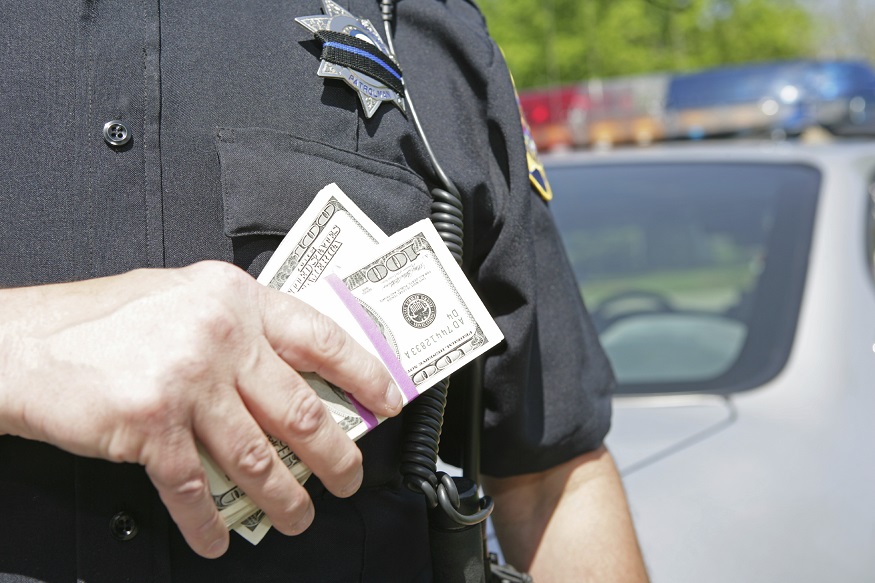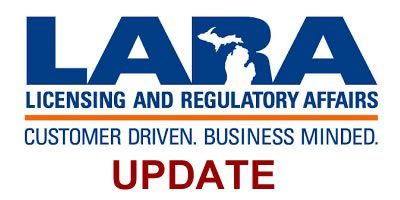The tactic, which cops have deployed for months in states like Oklahoma, is a new twist in “civil forfeiture,” a controversial legal process that lets police seize funds from motorists if they suspect money is tied to a drug crime. Critics, however, liken the practice to banditry—noting the police use forfeiture to pay themselves, and that citizens must take extraordinary legal measures to get their money back.
The arrival of the handheld ERAD machines, which stands for Electronic Recovery and Access to Data, comes at a time when fewer people are carrying cash. They work by imitating the payment terminals found at ordinary retailers, and allowing cops to slurp up the values found on pre-paid cards for Visa (V, +1.40%) , Starbucks (SBUX, +0.80%) and so on.
For now, it appears the ERAD devices are only able to siphon funds from pre-paid cards, and not from a driver’s personal bank account or credit card.
According to Matt Miller, a senior attorney at the Institute for Justice, the advocacy group first became aware of the ERAD machines several months ago. Miller says law enforcement groups have been touting them as a way to seize funds from drug dealers, many of whom use pre-paid debit cards to move funds around.
Indeed, a recent press release from the Department of Homeland Security talks up the benefits of ERAD technology.
“[L]aw enforcement seized approximately 1,000 cards from a suspected drug trafficker. With this technology they were able to identify more than $48,000 in funds that were loaded onto the cards,” said the release. “Since it was put into field testing, the Prepaid Card Reader has resulted in approximately $1 million dollars being seized by state and local law enforcement agencies from suspected criminal activity. ”
The trouble, says Miller, is that drug dealers are far from the only ones who use pre-paid debit cards. He points out that a growing number of employers are using services such as Visa Payroll, which encourages them to pay workers through the cards.
Miller says that law enforcement typically offers an example of using ERAD in order to seize funds in the event a driver is found with a suspicious stack of 50 pre-paid Starbucks cards in the truck of a car. But in reality, the police may also be using it to suck up funds from a single card in a driver’s wallet.
“The tech seems to have come out of nowhere and there’s no oversight of this,” he said. “A whole lot of these cases are for forfeitures of $500 or $800.”
He adds that the overwhelming majority of the seizures result in default court judgments, often because people don’t have the means or will to fight the police in court.
Americans Stripped of Cash, Cars—and now Cards
The controversy over civil forfeiture soared to national attention in 2013, in part thanks to a scorching New Yorker article called “Taken” that described how certain police departments are effectively using traffic stops to rob citizens of cash. Comedian John Oliver also took up the subject in a widely-watched 2014 episode of Last Week Tonight.
Most of the incidents arise in so-called “forfeiture corridors” in states like Texas and Pennsylvania, where police officers confiscate cash from motorists, even though many of them were using the cash for legitimate small businesses or personal matters.
Typically, the police do not even bother filing a criminal drug charge, but instead just bring a forfeiture case to keep the cash. In the event the motorist who once held the cash wants to recover it, he or she is required to intervene in the case, the time and cost of retaining an attorney and attending court is often not a viable option. The cops win almost every time.
Civil liberties groups like the Institute for Justice have notched a few victories. In February, for instance, the group forced an Oklahoma Sheriff’s Department to return $53,000 it lifted from a Christian rock band during a stop over a broken tail-light.
While civil forfeiture raises numerous due process questions, a broad-based Constitutional victory has proved elusive, in part because governments have been quick to walk away from cases that come under close legal scrutiny.
Meanwhile, the Obama administration, which took steps last year to rein in a federal law encouraging the seizures, decided to backtrack in March and allow the forfeiture program to continue.
It will be interesting to see how many law enforcement agencies decide to make ERAD machines part of their day-to-day operations. While Oklahoma has acknowledged to using 16 of the devices, it’s unclear for now who else is using them.
Miller, the lawyer, says for now the privacy concerns are real, remarking, “You have a police officer with a scanner that might go into someone’s bank account. It raises red flags with due process and the fourth Amendment.”
By JEFF JOHN ROBERTS | June 9, 2016


